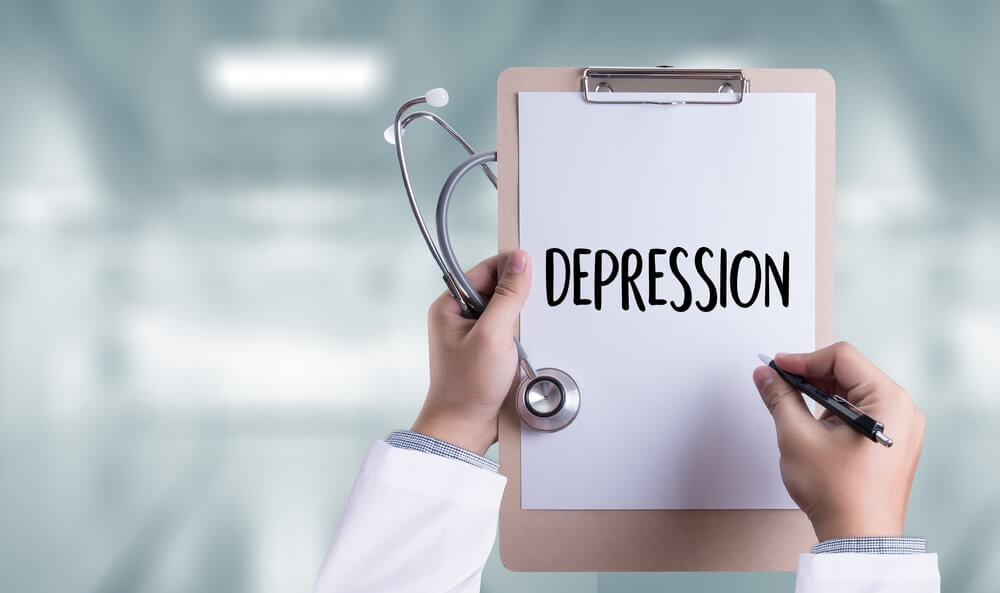Report about Depression
First by
definition
Depression: It is a
disease that affects the soul and the body. Depression affects the way you
think and act, and can lead to many emotional and physical problems.
Usually, people with
depression cannot continue to practice their daily lives as normal, as
depression causes them to feel a lack of desire in life.
It should be noted that depression is one of the most common
diseases in the world.
Learned helplessness: It is a typical behavior of living
organisms that occurs when the organism suffers from painful and repeated
excitations or stimuli that it cannot avoid or avoid. With this occurrence,
this organism often fails to learn the response to escape or avoidance in new
situations where the possibility of escape or avoidance is more likely. In
other words, the object learns that it has no power during situations that
involve painful and repulsive stimuli and stimuli, and then the object accepts its loss of control.
Second, the
symptoms
Symptoms of depression:
different and varied because depression appears in different forms for
different people.
For example, symptoms of
depression may appear in a 25-year-old person with depression that is different
from that in a 70-year-old person:
Loss of desire to
practice regular daily activities
Feeling nervous and
depressed
Feeling of hopelessness
Bouts of crying for no
apparent reason
Sleep disturbances
Difficulty focusing
Difficulties in making
decisions
Accidentally gain or
lose weight
Nervous
Worried and restless.
Symptoms of Learned
helplessness: It can start of Learned helplessness: early in life, for example
in children who grow up in strict institutional environments, often showing
symptoms of disability even during childhood, as well as when children need
help but no one helps them, and can lead to repeated experiences, which enhance
Feelings of helplessness and hopelessness; For a child's growth with a sense of
no sense doing something, and that nobody will help it, too. Some common
symptoms of Learned helplessness in children include:
Low self-esteem
- Negative
Weak motivation and
self-motivation
- to give in
Not making an effort on
anything the child wants
Frustration
- Procrastination
Not to seek help
A child's Learned
helplessness can also lead to anxiety, depression, or both.
Third: treatment:
Depression treatment:
·
Drug treatment
·
Psychotherapy
·
Electroconvulsive treatment (Electroshock treatment -
ECT)
There are also methods
for treating depression that did not meet research and experimentation, such as
the accepted methods mentioned above, among them:
·
Cerebral stimulation
·
Complementary and alternative therapies.
There are certain situations in which a family doctor can
treat depression on its own.
But in other cases, a qualified psychotherapist for
depression is needed, a psychologist, a psychologist or a social worker.
Treatment of Learned helplessness : CBT is a form of
psychotherapy, which can be useful in overcoming patterns of thinking and
behaviors that contribute to the development of acquired disability, and the
goal of CBT is to help people with disabilities; To identify negative patterns
of thinking that contribute to the feeling of acquired disability, then replace
these ideas with more optimistic and rational ones, so that this process
includes a careful analysis of what the person who suffers from acquired
disability thinks, challenging and discussing the negative thinking patterns he
adopts.
Conclusion
People who view events as uncontrollable can show a variety
of symptoms that threaten their mental and physical health. They may experience
stress, often showing disturbances in emotions, showing some degree of
negativity or aggression, and they may also have difficulty performing
cognitive tasks such as solving problems. They are less likely to alter
unhealthy patterns of behavior, which may cause them to neglect, for example,
diet, exercise and medical treatment.
Parasympathetic and cognitive psychologists found a strong
correlation between depression-like symptoms and learned disability in
laboratory animals.
Young people and middle-aged parents with a pessimistic
explanatory style often suffer from depression. These people tend to have a
lack of problem solving and cognitive restructuring, and also tend to
demonstrate poor job satisfaction and personal relationships in the workplace.
Resources
·
Study of acquired disability learning, published on
allpsych.com,
·
Martin Seligman, Steven F. Maier 1975,
"Theoretical acquired disability and evidence"
·
Martin Seligman optimism learning test
·
The Identity and Control Book for the American
Sociologist Harrison White




تعليقات
إرسال تعليق